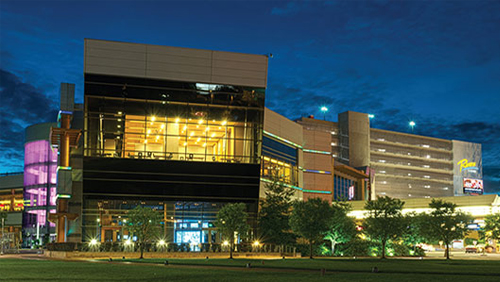Pennsylvania’s Rivers Casino has backed off its plans to launch online gambling in the state, freeing up three more product licenses for hopeful out-of-state entities.
 On Thursday, the Pennsylvania Gaming Control Board (PGCB) announced that the Rivers Casino in Pittsburgh had withdrawn its application to offer online poker, slots and table games, as permitted under the gambling expansion legislation the state approved last year.
On Thursday, the Pennsylvania Gaming Control Board (PGCB) announced that the Rivers Casino in Pittsburgh had withdrawn its application to offer online poker, slots and table games, as permitted under the gambling expansion legislation the state approved last year.
The PGCB’s statement offered no explanation behind Rivers’ motivation for withdrawing its application, which the company had submitted back in July. Rivers is also one of five Pennsylvania casinos that has applied to offer sports betting in the state, and the company appears content to keep that application alive.
In a statement to CalvinAyre.com, Jack Horner, spokesperson for Rivers Casino Pittsburgh, said, “Rivers Casino Pittsburgh intends to provide iGaming to Western Pennsylvania and the Commonwealth; however, we’re taking additional time to explore the various options for doing so. Rivers is actively pursuing a sports wagering certificate to offer both land-based and mobile sports betting.”
Rivers, along with the SugarHouse casino in Philadelphia, is owned by Rush Street Gaming, whose digital division has been active in New Jersey’s regulated online gambling market via the PlaySugarHouse brand since 2016. Rush Street has offered no indication that it intends to withdraw the Pennsylvania online application filed by its SugarHouse casino.
With the full suite of online gambling product licenses carrying a $10m price tag (available à la carte for $4m apiece), Rush Street clearly feels there’s no need to pay the state twice (especially since that sports betting license costs an additional $10m). Whatever Rush Street’s motivation, the PGCB now has three additional online product licenses to go with the seven licenses that went unclaimed in the state’s initial licensing round.
The state’s licensed casinos were given first crack at the online diplomas, but the remaining product licenses – four online poker, and three each for slots and tables – will now be offered to so-called “qualified gaming entities,” (QGEs) including companies with no existing gaming presence in the state.
The PGCB has invited QGEs to express their interest by October 31, after which the ones the PGCB deems to be truly qualified will face a “blind random drawing” to narrow the field, with the first names drawn being given first crack at snapping up the available licenses.
This article has been updated to include the statement from Rivers Casino Pittsburgh.